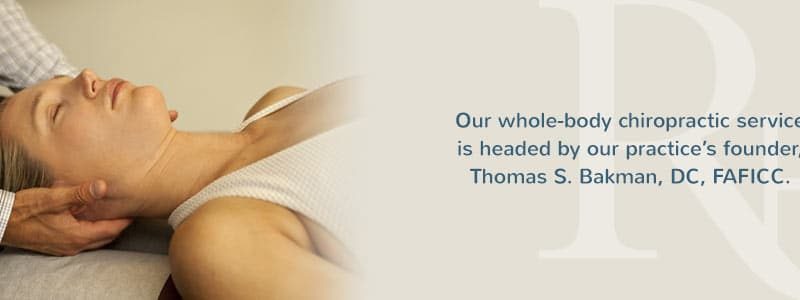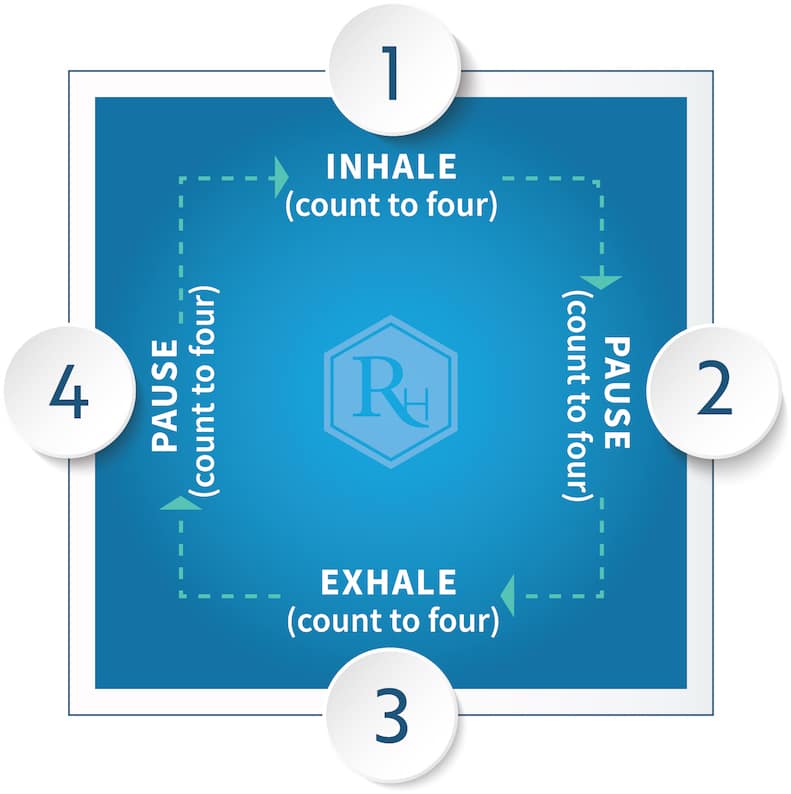De-stress in The Moment with Box Breathing

There’s no shortage of advice for what to do when you’re feeling stressed and overwhelmed. And if that stress is chronic and you aren’t doing anything about it, here’s a few suggestions:
- Increase your physical activity
- Eat a healthy diet
- Journal for 10 minutes each day
- Reduce or stop drinking caffeine altogether
- Spend more time with the people you love and who make you smile
- Watch or read something funny
That’s all well and good, but how about those times you’re feeling stressed or overwhelmed in the moment? While each the above items are beneficial to reducing stress, reducing your intake of coffee when you’ve already downed a couple of cups probably isn’t going to cut it. And it’s not often you can just stop everything you’re doing right now and increase your physical activity.
For those times when you’re in the throes of stress, we’re suggesting that you just breathe! We’ve all been told that, but few of us remember that simple edict to “breathe!” Even fewer of us do it properly, ending up hyperventilating our way to a full-fledged panic attack.
Introducing Box Breathing
That’s where “box breathing” comes into play! Box breathing is a technique that’s easy to do and even easier to remember. Just imagine the four sides of a box (or a square, such as the one shown below). All that’s required of you to remember is four steps, four seconds per step, four repetitions:
- Inhale slowly to the count of four.
- Pause (gently hold your breath) to the count of four.
- Exhale slowly to the count of four.
- Pause for the count of four.
Repeat this cycle four times while assessing how you are feeling — physically, mentally, and emotionally.
Box breathing delivers many benefits, including the following:
- Calms anxious minds and tense bodies
- Focuses your attention on the here and now
- Disengages the body’s sympathetic nervous system, which is responsible for its fight-or-flight response
- Engages the body’s parasympathetic nervous system, which is responsible for its rest-and-digest response
Remember: Stress and anxiety often fester when we ruminate about the past (which we cannot change) or worry about future events (which we cannot predict.) Staying “in the present” is one of the best ways to prevent and relieve stress and anxiety. That’s why they call it the present. It’s a gift!
And deep breathing is one of the best ways to remain in the moment.


